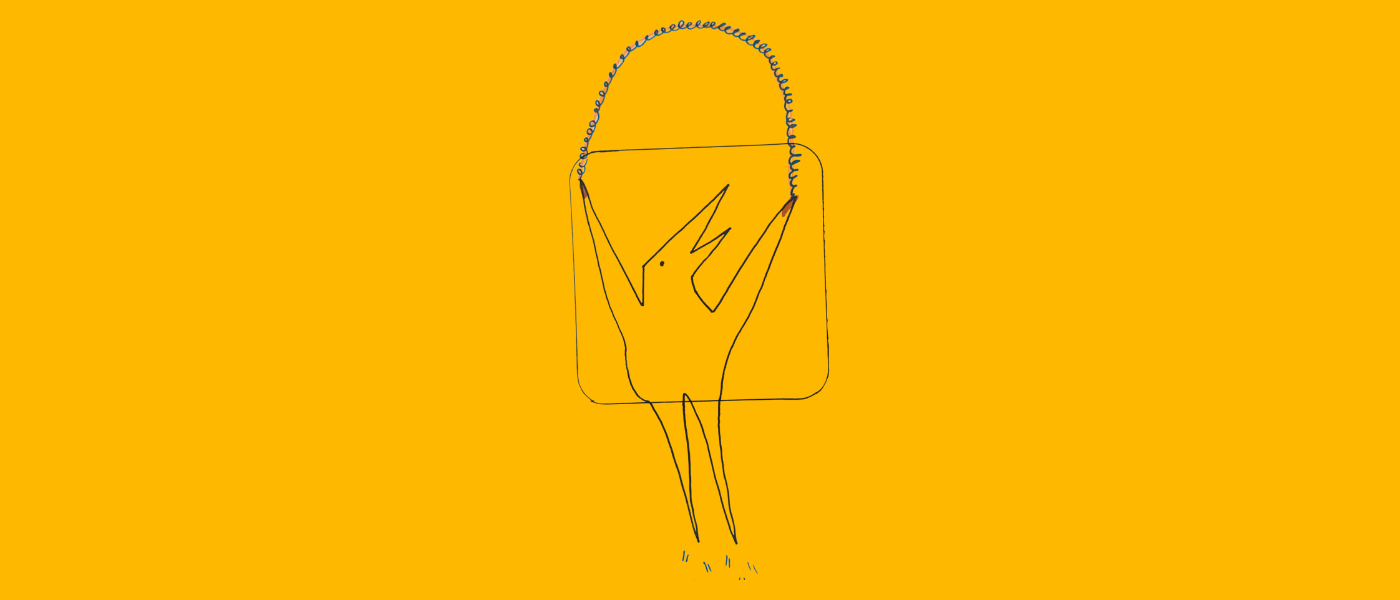“The books, the authors who matter the most are those who speak to me and speak for me all those things about life I most need to hear as the confession of myself.”
– Geertrui, in Postcards from No Mans Land by Aidan Chambers
I met Allison at a live podcast show. She mentioned she had recently started her own podcast with an ex-bandmate (for tragic reasons they couldn’t perform any more and wanted another way to express their creativity). The podcast is called Your Own Words and for each episode, a guest nominates a book which has had an impact on them. The hosts, Allison and Bec, read it too and then the three discuss it. Allison asked if I would like to be a guest and I excitedly accepted.
The much less easy and decisive part was picking a book. I thought about books I re-re-re-read as when I was little, like Wise Child or basically any Roald Dahl book (but would I have enough to say about a children’s book?) Maybe I would pick a classic, such as Little Women or To Kill a Mockingbird (but, ahhhh there is so much analysis out there already!) I thought about the books that made me want to write because of how they captured some parts of being human that I had never seen or heard described before, such as Everything is Illuminated. I thought about the books from the past few years which I have learnt about race and identity, such as Americanah or What is the What (but this is not my story to tell!) Allison mentioned that for the past few weeks the authors had been white and male. I thought I had a responsibility to do something different and relevant to me. I wanted them, and their listeners, to find me interesting and also socially aware.
When thinking about all of this, I had a particular episode in my mind where a guest talked about The Virgin Suicides and how much it had impacted them to read it in their teens. So after deliberating for a couple of weeks (really – some nights I was going to sleep thinking about it) I picked a book that I read when I was about 11, Postcard’s from No Mans Land by Aidan Chambers.
My Godmother, Mary, had given it to me. I think she had seen it had won the Carnegie Medal and thought it could be a good gift. She died when I was 13 so I can’t ask her. I enjoyed it immensely and read it multiple times. The chapters are split between Amsterdam in the 1990s, following 17-year-old Jacob, and 1944, following Geertrui, a young woman and her relationship to a wounded British soldier. The book was for young adults and drew me in with its various ‘mature’ themes. I am guessing my Godmother had not read the book before she gave it to me. No judgment here – I am very glad she did.
It was also interesting re-reading the book ahead of the podcast because of the themes that I like to read/think/talk about as an adult too, which I hadn’t clearly remembered from the book. I liked how themes of sexuality came up, without any labels: the main character is attracted to men and women and this is treated as gradual exploration rather than a need to then pin down his identity. Ways of living that buck the trend of social norms also came up; euthanasia, polyamory, not glorifying war (I wonder if those three have been in a sentence before!)
Some things came up, on reading it as an adult, which I wasn’t so keen on. For example, I noticed the book doesn’t pass the Bechdel test. A work of fiction passes the Bechdel test if two women have a conversation about something other than a man. Some fails include The Lord of the Rings trilogy (really, in ten whole hours), Avatar and Sex in the City. This test is not a failsafe method of anything but can highlight how women are generally used to support male characters, rather than having their own storylines. Despite half of the book being written from the perspective of Geertrui, a young woman, she does not have one conversation with a woman about anything but men. I decided that could be a talking point, rather than a reason not to pick it, as life is not that simple and if we shunned everything or everyone for things we see as mistakes or that we disagree on, we’d be very lonely creatures. As an adult, I was also pretty curious about the author, as far as I know, a white, middle-aged cis (straight?) man.
So big themes were sex, sexuality, gender. Before the recording, I wondered if I would talk about my own sexuality, or just allude to it and hope that people would guess through some magical way (I can see why Polari was popular!) The thing is it is assumed by pretty much everyone that I am straight because I have only dated men and am in a long-term relationship with a man. Bisexuality is generally invisible. If I was in a relationship with a woman, people would assume I am a lesbian. There is talk about those identifying as pansexual or bisexual as being undecided or greedy.
When people say something in passing which highlights their assumption that I am straight, I feel like I am hiding something. I wonder why I don’t share this with them. Sometimes in various situations, it feels like overkill to state that I am not only attracted to men. Imagine someone telling me about a romcom, “Ahh Pretty Woman is such a classic, don’t you just think Richard Gere is so attractive?!” Do I really need to say “WELL ACTUALLY I LIKE WOMEN TOO AND JULIA ROBERTS IS BEAUTIFUL.” But, when I don’t say anything, it feels inauthentic and authenticity is important to me. I also wonder why I am not sharing this information.
I know I am worried about uncomfortable conversations. Women being attracted to women is such a sexualised/fantasy topic, in a way that heterosexual relationships are not. I feel uncomfortable about people then thinking about me in that way. Relationships between women are taken less seriously. Multiple men have said to me that they wouldn’t mind if their girlfriend slept with another woman, but would break up with them if they were with another man. I wonder if unconsciously I thought that if it was taken as less valid, it meant I didn’t think it was ‘necessary’ to share. I feel guilty for this impacting me, as something incredibly important to me is that people should be able to share their identity with others. By hiding mine, am I encouraging shame?
The reason I decided to go ahead and mention it in the podcast and write this blog, is simply because there are so many things out there that need to be talked about more to reduce the shame and stigma around them and this is one of them. Saying that, no one should feel a responsibility to share their sexuality with anyone, for any reason. My initial reason for being a guest on Your Own Words was because I liked the idea of talking to interesting people about books and practising getting my voice out there and it has ended up becoming quite a bit more. A lot of this information will be news to people so it is pretty scary to share it.
P.S: I would LOVE to speak to other people about their experiences or questions about these topics, despite the possibility of uncomfortable conversations. You can get in contact with me here.
THANK YOU: to Bec and Allison for hosting and for helping me feel like this was something ok to do. Thank you to Rodrigo for working with me on this piece of writing and helping coax out the things I was scared to share.
You can find Allison and Bec/ Your Own Words on Instagram, Twitter and Facebook.

